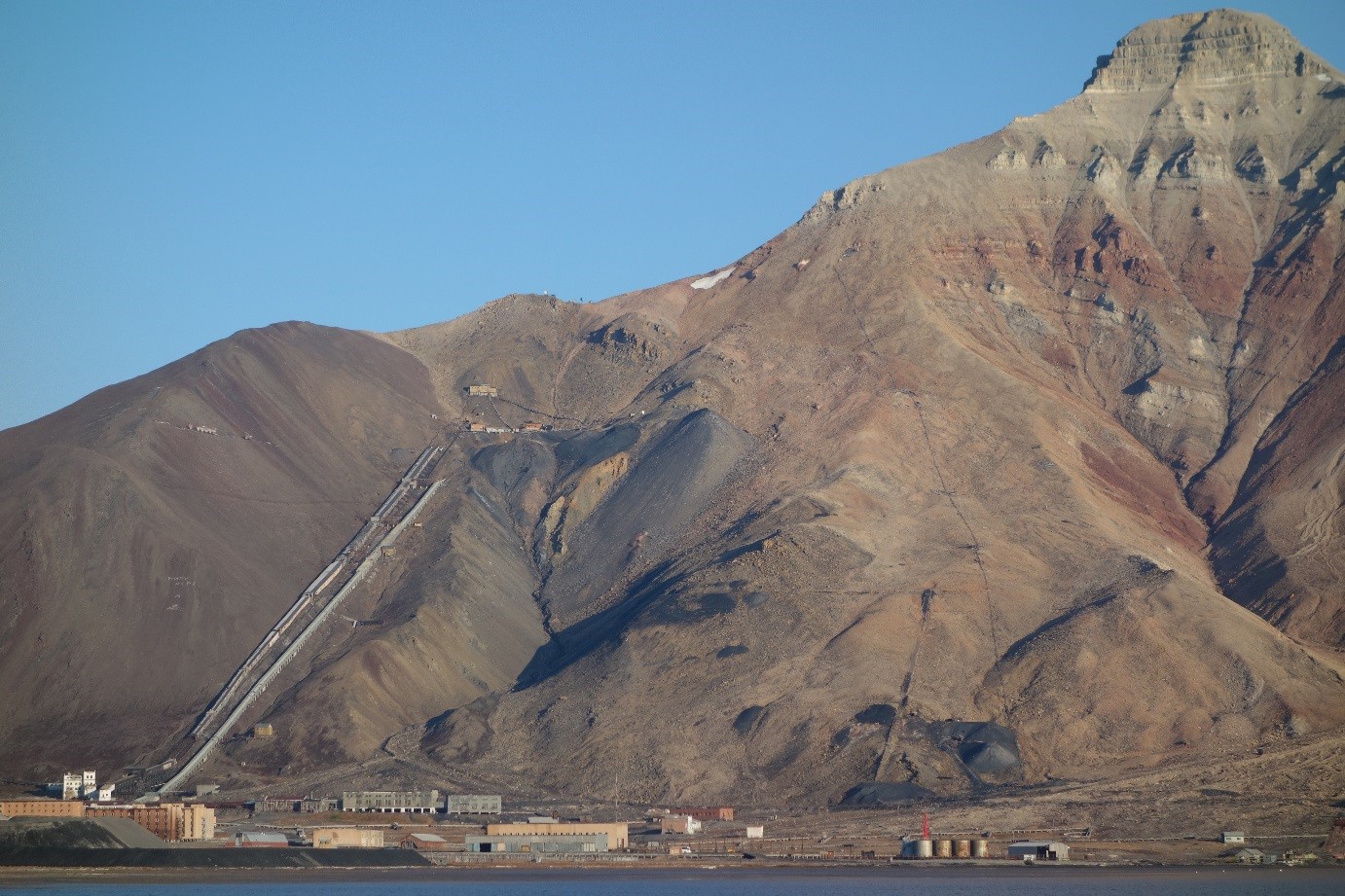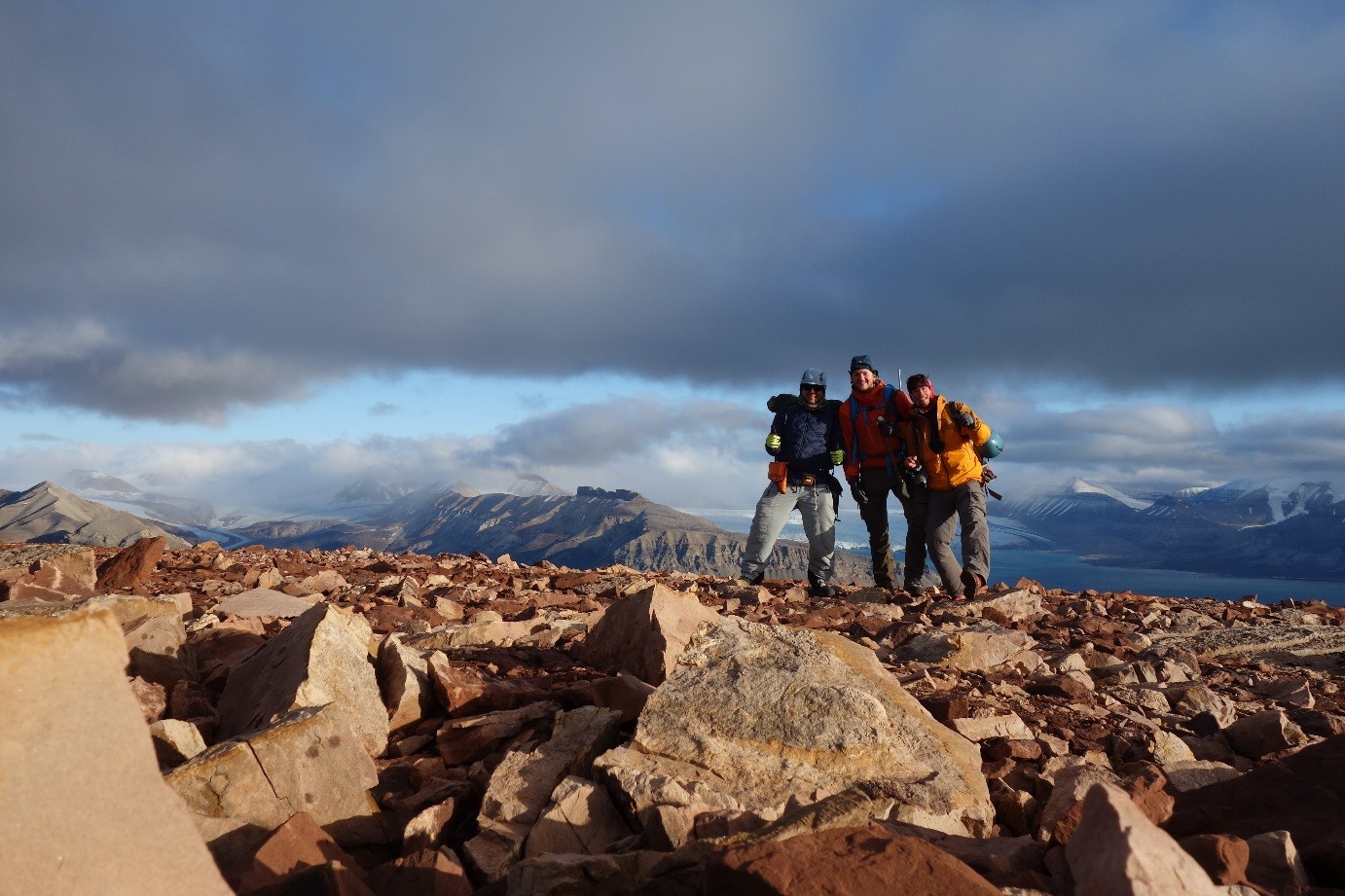The one month intensive course “Rift Basin Reservoirs - From Outcrop to Model” at the University Centre in Svalbard (UNIS) is highly relevant for my doctoral education as it teaches extensional tectonics, the interplay between tectonics and sedimentation during basin formation and the role of tectonic reactivation. In September 2017 the course comprised lectures at UNIS in Longyearbyen as well as 8 days of field trip in the Billefjorden Trough, a Carboniferous half-graben basin which formed on reactivated Devonian structures. We worked in the area around Pyramiden, an abandoned Russian mining town below the eponymous mountain (Fig. 1).

After an introduction to the field area, the PhD and Master students were separated into smaller groups to conduct a small “research project”. In beautiful weather and a spectacular arctic landscape, my group was mapping the basin-bounding fault to constrain the role of tectonic inversion (Fig. 2).

I have learned a lot from fieldwork as well as lectures and this newly gained knowledge will directly benefit my own research. It was a great experience to get to know the arctic geology of Svalbard and meet researchers and students from national as well as international institutions. I am very grateful to DEEP for making this experience possible.